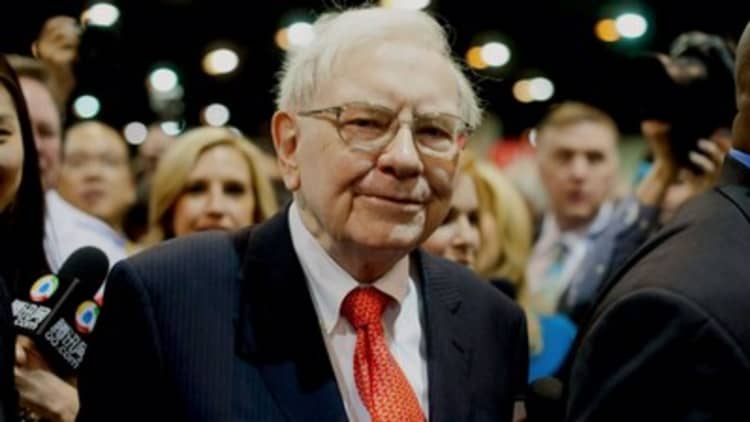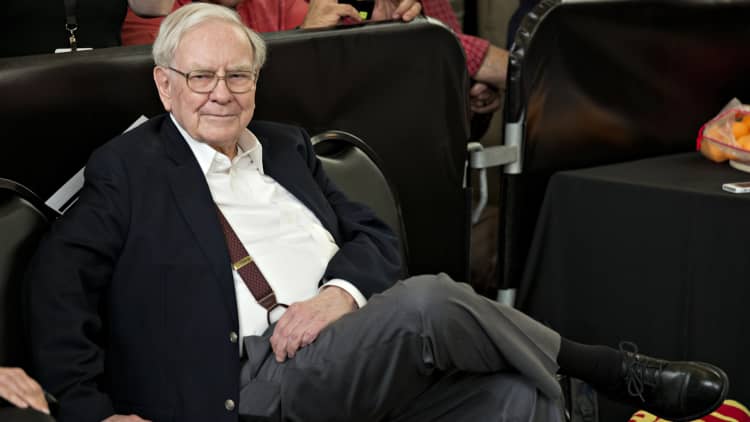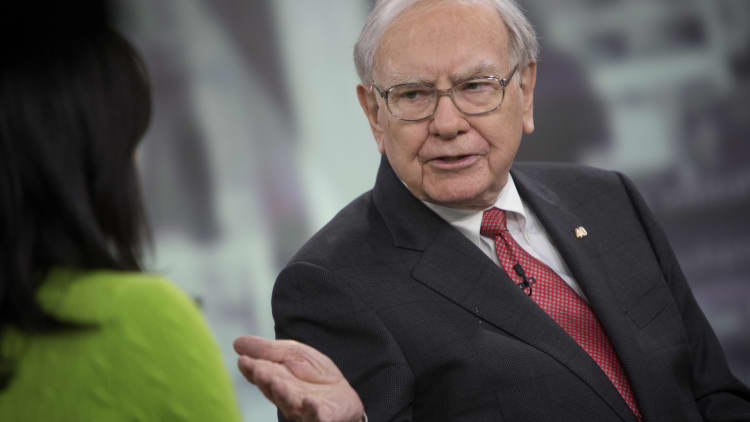Warren Buffett is perhaps the most famous and most successful investor alive today. Dubbed the "Oracle of Omaha," the 86-year-old CEO of Berkshire Hathaway has a net worth of more than $75 billion.
Most people excitedly await Buffett's annual letter to Berkshire shareholders for the sage advice he gives. But psychology professor Bob Cialdini, who has spent his entire career studying the science of influence and persuasion, is drawn to something more subtle.
"I've been getting his annual shareholder reports for more than 15 years now. And I've noticed something that he does as a CEO of the company Berkshire Hathaway that I've never seen in any other report," says Cialdini of Buffett.
"On the first or second page of the report he describes an error, a mistake, that he and his company made the previous year.
"It is so disarming," Cialdini tells CNBC.
"I say to myself every time, 'Oh! This guy is being straight with us. What is he going to say next? I need to pay attention to everything he says next!'
"And that's where he describes the strengths," says Caldini, author of New York Times bestselling books "Influence: Science & Practice" and "Pre-Suasion: A Revolutionary Way to Influence and Persuade."
"He's established himself as a trustworthy credible source of information before he describes the things that are most favorable, that he wants me to process and recall. Brilliant."
In politics, Cialdini points to Presidents Ronald Reagan and Bill Clinton as naturally persuasive people.
"Both were able to get what they were saying to resonate with audiences by virtue of their engagement," says Cialdini, who is Professor Emeritus of Psychology and Marketing at Arizona State University.
Luckily, even if you aren't born with such abilities, you can still draw lessons from the masters of influence to improve your game.

"Persuasion is both an art and a science — that is there are people who are born masters of the process who know just what to say at exactly the right moment. What about the rest of us though?" asks Cialdini.
"It turns out that because persuasion is also a science the rest of us can learn how to be as effective as those naturals at the process."
Anyone can use Buffett's move, for example. The next time you are trying to get a new customer, colleague or business partner to trust you, disarm them by sharing a misstep you made — then hit them with your credentials. Showing that vulnerability first will make your audience more receptive to believe what you say next, says Cialdini.
Like this story? Like CNBC Make It on Facebook.
See also:
Bill and Melinda Gates turn their annual letter into a valentine celebrating Warren Buffett
Billionaire Warren Buffett says 'the real problem' with the US economy is people like him




